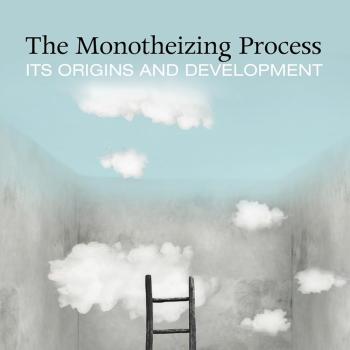In recent times, some Old Testament (OT) scholars have claimed that at least the early faith of the Hebrew people was henotheistic rather than monotheistic. There is some evidence in the Old Testament that seems to support this scholarly claim about the Hebrews being henotheists. Monotheism means there is only one god, whereas henotheism means there are multiple gods with one of them being chief of all. Some OT scholars claim the OT indicates that the Hebrews were henotheistic and that the later Jews became monotheistic.
For one thing, there are so many instances of “Most High (God)” in the psalms, most of which were written quite early. [See my last post, “Why Don’t Christians Say “the Most High (God)?”] But then Isaiah’s middle portion of his book (if he was the sole author) seems to negate henotheism and certainly polytheism, thus affirming monotheism. For Isaiah presents God repeatedly declaring, “there is no other God besides Me” or the like (e.g., Isaiah 45.5-6, 18, 21-22; 47.8, 10).
Moses also seems to have earlier represented God as saying, “there is no god besides me” (Deuteronomy 32.39 NRSV). Yet Moses then says, “Praise, O heavens, his people, worship him, all you gods” (v. 43 NRSV), as if he says that other gods do exist. But an NRSV footnote for v. 43 says it is taken from the LXX rather than the MT. That means the translation committee considered this LXX rendering more reliable. Most English versions of the Old Testament are translations of the MT, but sometimes they use the LXX.
Yet there is no question about this idea in Isaiah, who represents God as saying, “There is no other god besides me” (Isaiah 45.21). Plus, Isaiah says of the world to come that people will say of Jews, “God is with you alone, and there is no other; there is no god besides him” (Isaiah 45.14).
All Old Testament scholars acknowledge that the Old Testament clearly states that God has a special council of angels in heaven with whom he meets regularly to discuss plans and strategy, much like a human king or president of a nation does with his/her advisors. For example, the psalmist writes, “God has taken his place in the divine council; in the midst of the gods he holds judgment” (Psalm 82.1). Some OT scholars say this refers to Israel’s council, especially due to v. 6. But a later psalm says, perhaps more clearly, “Let the heavens praise your wonders, O LORD, your faithfulness in the assembly of the holy ones. For who in the skies can be compared to the LORD? Who among the heavenly beings is like the LORD, a god feared in thre council of the holy ones, great and awesome above all that are around him” (Psalm 89.5-7).
So, is God the only god, thus monotheism, or is God the chief among other gods, thus henotheism? What do you think?
…………….
To see a list of titles of 130+ posts (2-3 pages) that are about Jesus not being God in the Bible, with a few about God not being a Trinity, at Kermit Zarley Blog click “Chistology” in the header bar. Most are condensations of my book, The Restitution of Jesus Christ. See my website servetustheevangelical.com, which is all about this book, with reviews, etc. Learn about my books and purchase them at kermitzarley.com. I was a Trinitarian for 22 years before reading myself out of it in the Bible.












